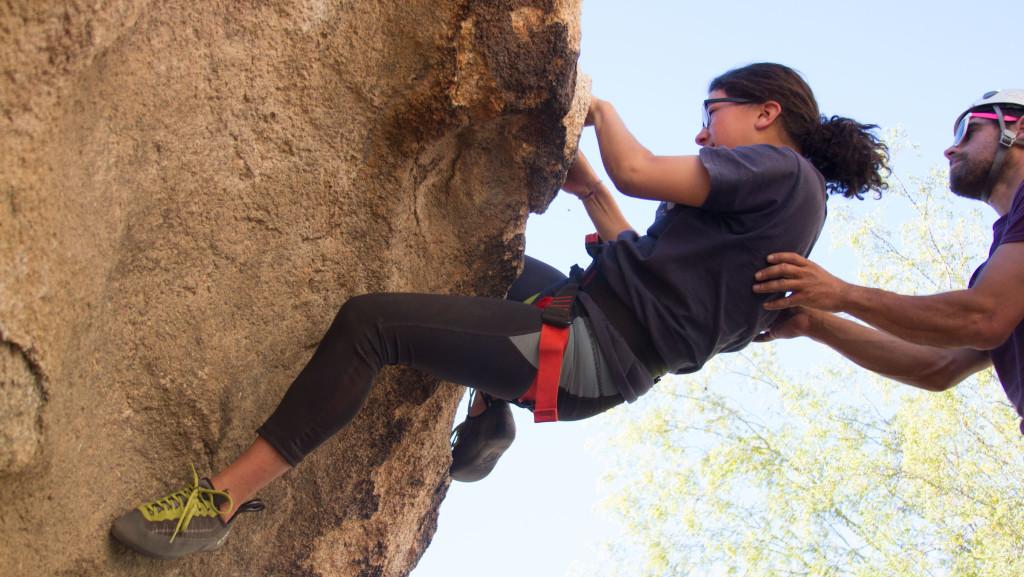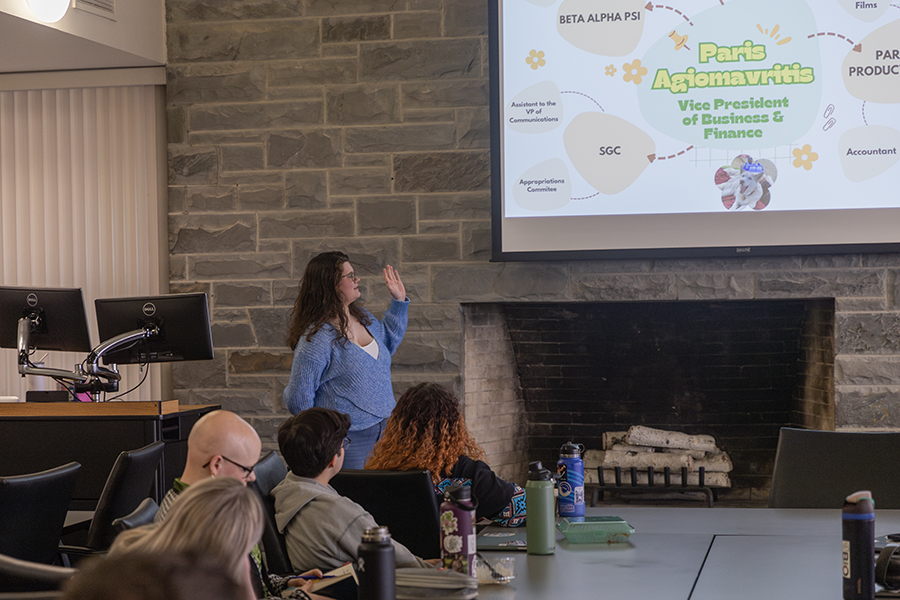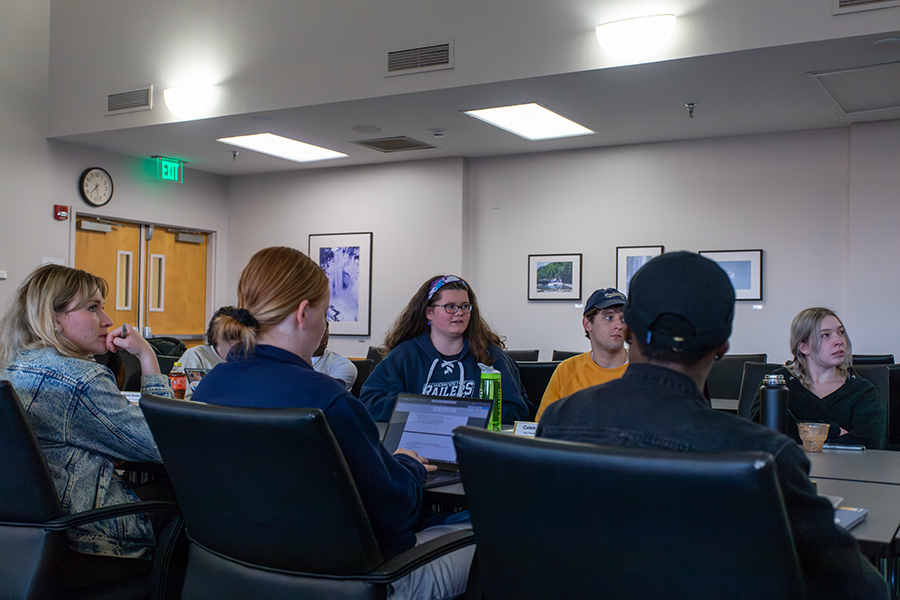
On March 11, the blue skies over Joshua Tree National Park darken with clouds, and heavy rain falls onto the desert’s parched tongue. The rain assails the faces of the granite monuments rising out of the sand for more than an hour, and a vicious wind whips campers’ tents to and fro.
The flora and fauna of the desert are well prepared to ward off thirst. The teddy bear chollas grow a dense outer layer of spines, shading their stems from the hot sun and deterring animals, and their stems are segmented to store water. The black-tailed jackrabbits regulate their body temperature through their massive ears. The kangaroo rat’s kidneys are hyperefficient, concentrating its urine to minimize water loss.
The Joshua trees, for which the park is named, are experts at storing and saving water, especially the older, more established ones. But California’s crippling drought has been taxing, even on them. As the storm screams through the Mojave Desert, the thirsty trees drink while they can, absorbing the blasts of rainwater through their corklike trunks. Their shaggy, twisted arms reach for the sky, their tufts of green, needly leaves waving in the wind.
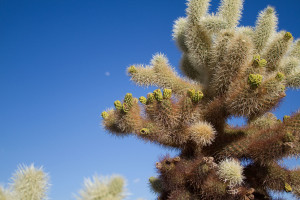
FAITH MECKLEY/THE ITHACAN
Nestled at the feet of a granite giant in Indian Cove — one of the park’s official campgrounds — eight Ithaca College students and their five instructors take cover. The group has just emerged from a 20-day, 100-mile backcountry hike through the park, which is larger in area than Rhode Island. It is the first full rain they have experienced since they arrived in California in late February to begin their semesterlong outdoor excursion, known as the Immersion Semester Program.
Nick Beltran, Sarah Stuart-Sikowitz, Dylan Bland and Violet Perry are all sophomore outdoor adventure leadership majors. Jen Goldhar, also a sophomore, is majoring in therapeutic recreation. Rob Lister and Lima Hossain, both juniors, and Holly Perkins, a sophomore, are minoring in outdoor adventure pursuits. As part of their coursework, they are spending the entire spring semester in the wild places of California and Oregon. This trip is spearheaded every spring by Pat Lewis, assistant professor in the Department of Recreation and Leisure Studies.
The group’s arrival at Indian Cove Campground marked the end of its backcountry hike and the beginning of its weeklong “rock camp” in one of the nation’s Meccas for climbers, second perhaps only to Yosemite National Park. The climbing experience of the group ranges from almost none at all to Rob, an employee at the college’s rock wall and a regular gym climber for years with a couple of outdoor excursions under his belt.
[acf field=”code1″]
For a tourist, Joshua Tree National Park is 1,234 square miles of potential photos ripe for the taking, with the convenience of never needing to leave a road to capture the low-hanging fruit.
A rock climber does not come to take pictures. The rock climber enters Joshua Tree to attend church in stone cathedrals shaped by thousands of years of wind, to slip the tips of their fingers into the same chalk-dusted holds the climbing giants once did. They sacrifice blood, sweat and the skin of their fingers to the granite gods to become something more than they were before.
The storm loses its momentum, and the rain clouds draw to the horizon like curtains, revealing a window to the night sky ablaze with billions of sparkling stars.
The eight companions emerge from their two pitched, oblong, army-green tarps. They are bundled in their raincoats and winter hats as the temperature drops. The light of their headlamps bounces off tin cups and metal storage boxes, and their laughter echoes across the giant slabs of stone. Nick heats up a pot of water on the propane stove for hot cocoa, grinning beneath the hood of his black sweatshirt.
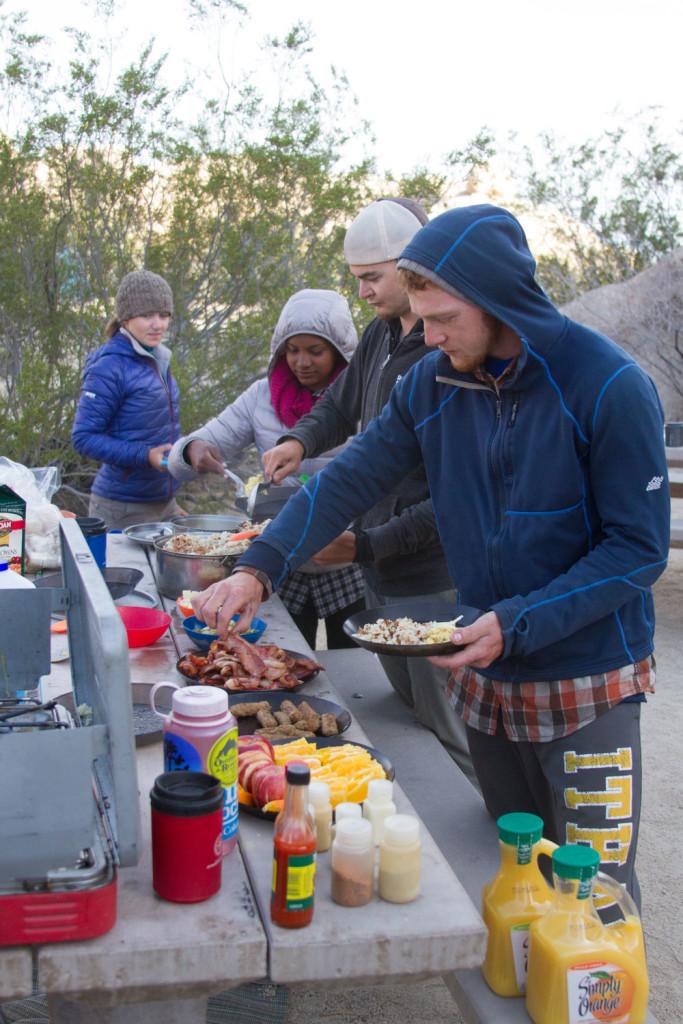
FAITH MECKLEY/THE ITHACAN
Jen and Lima work together to polish off the last of the dishes from dinner over a blue and white Ithaca College flag hanging from the side of a folding table. Rob, Dylan and Holly wipe down wet surfaces and stash loose items into the appropriate bins.
Violet and Sarah dance about the camp, providing the entertainment. With Sarah’s airy voice and Violet’s deeper harmony, they sing “Yesterday” by The Beatles, and everyone joins in.
Dylan’s voice breaks as he sings, but no one really cares. After 20 days in the backcountry, they have lost all sense of shame.
This group is Pat’s fourth after taking over the program in 2012. Pat made the decision to connect the program with Outward Bound, a nonprofit outdoor-education organization founded in 1941, so he could focus on teaching while OB personnel worried about logistics like gear and backcountry hiking permits.
Pat and OB instructor Cam Alford are with the students for the whole trip, aside from small stretches of personal time off. Other instructors join them for short periods as they’re needed. In Joshua Tree, Lilita “Lil” Wood, Scott Shepherd and Andy Bittner join the group.
Pat said the students’ love of music is the most obvious thing that sets them apart from previous immersion groups.
“They sing — they sing a lot. Not that other groups didn’t sing, but it was almost from day one. There’s three ukuleles here — I’ve never had a ukulele on this course at all.”
[line]
“Must we always teach our children with books? Let them look at the mountains and the stars up above. Let them look at the beauty of the waters and the trees and flowers on earth. They will then begin to think, and to think is the beginning of a real education.”
— David Polis, naturalist
[line]
With the dishes clean and hot cocoa distributed, the group gathers for its evening meeting, where the members take time to recognize one another with “appreciations,” discuss what they could have done better with “ownerships,” and address potential problems before they explode with “C-4s.” Gripping their tin cups of hot cocoa, holding them just under their chins to warm their faces with the steam, they huddle together in a circle.
After their first day of climbing, in a quiet voice, Lima gives an appreciation to her companions for their patience. Earlier in the day, Lima had her first go at an outdoor climb, and in a long, multi-attempt struggle to conquer the route, the granite won. All of her prior experience with climbing had been in gyms.
While gym climbing serves as a fine classroom with its plastic holds and bright splashes of colored tape showing the way to the top, it takes getting chewed up by granite teeth beneath an oppressive desert sun to forge a true climber.
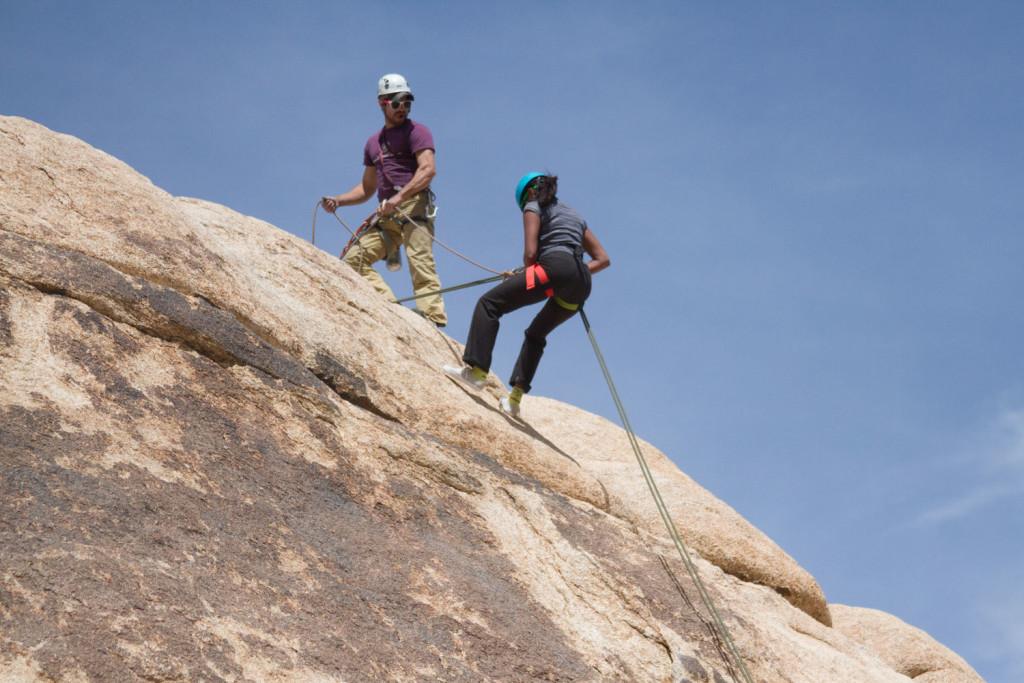
FAITH MECKLEY/THE ITHACAN
Partway up her first outdoor climb, Lima looked down between her feet. Her belayer — the person responsible for holding the other end of the rope and saving her life if she fell — was much farther away than she anticipated. She was higher up than she had ever been on a plastic gym wall. Panic set in.
Unable to get her nerves under control, she panicked, climbed down and went to the nearest outhouse and cried. Her classmate Holly, a seasoned outdoorswoman, came to find her and offer her reassurance.
Lima is the littlest of the eight, with Holly coming in a close second. She keeps her thick, black hair in a French braid to prevent tangling. She treads lightly, her small body moving through the big world around her like a passing breeze. She was born in Bangladesh, and her family moved to New York City when she was an infant. She grew up in Brooklyn with minimal exposure to the natural world.
Lima fell in love with nature through her interest in science. Her first time living outdoors was at a summer internship when she was a high school sophomore at the Montezuma Audubon Center on the north end of Cayuga Lake.
“I never saw the stars before. The stars were so beautiful,” she said. “We went out in marshland and picked out this invasive species plant. … I remember being covered in mud up to my knees and just swamping around in this marsh and just thinking, ‘Wow, I never thought I’d be able to do something like this.’”
[block]“Lean your shoulders back like you’re going to do a backflip!” Scott yells to her.
“Oh, God!” she cries, and grips the wall tighter.[/block]
The day after her first attempt at outdoor climbing, the group unloads from the white 15-passenger van into a stone parking lot. It’s only 10 a.m., but the heat is already climbing into the 80s, and the desert floor shimmers and rolls in the distance. They hoist their packs full of food and climbing gear onto their shoulders and set off, following a discreet, milelong trail among the creosotes to Bear Island, a rock formation drifting in an ocean of sand.
When they arrive, the instructors set up three ropes to access five climbing routes of different difficulties. American climbers rank climbs with the Yosemite Decimal System, placing routes on a scale of 5.0, the easiest, to 5.15, the hardest thing that’s ever been climbed.
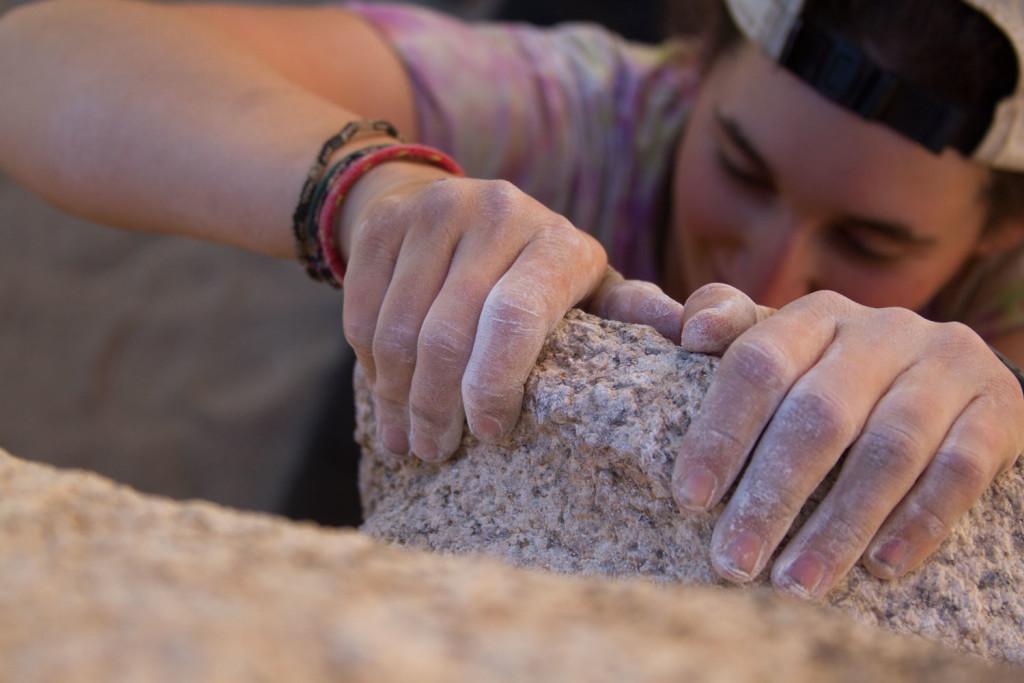
FAITH MECKLEY/THE ITHACAN
Deciding what number to give a route is subjective. Many of the routes in Joshua Tree, some of which were first climbed and ranked nearly 50 years ago, are “sandbagged,” meaning they are harder to climb than what their number suggests. The decimal scale used to stop at 5.9 but increased to 5.15 as both equipment and athletes evolved. Because of this, a route ranked a 5.9 in the 60s is often substantially harder than a more recently ranked 5.9.
After her breakdown the day before, Lima is determined to take on her first ascent. She approaches the rightmost rope to climb “Kodiak,” a 5.5, and Jen agrees to belay her.
She spends a half-hour stuck just 6 feet off the ground, unable to put weight on her feet and trust that her climbing shoes will stick to the wall. Finally, Lil, one of the instructors, reaches up and holds Lima’s right foot to the wall with her hands, and with this boost, she begins slow progress up the more-than-50-foot face.
As she reaches the halfway mark, Dylan begins climbing “Polar Bears in Bondage,” a 5.7 to the left of Lima, and in the span of 10 minutes passes her. He makes short work of the route in his blue climbing shoes with a hole in one of the soles.
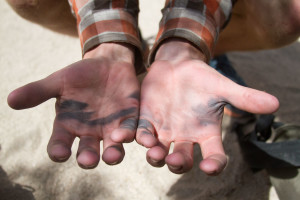
FAITH MECKLEY/THE ITHACAN
“Tension!” he calls down the rope to Holly, his belayer. She takes in the slack in the rope and sits in her harness, making the line between her and Dylan taught. He leans back from the wall, and a breeze rustles his waves of red hair as he scans the desert landscape.
Haphazard piles of granite boulders jump up from the flat, sandy floor, as though a giant were playing in a sandbox, stacking whimsical rock sculptures as the moment moved him. Over Dylan’s head, there’s not a scrap of cloud to be seen. He watches a small, silver bullet float high above Bear Island, glinting in the sun, its engines filling the desert below with a faint roar. As he follows the plane with his eyes, he remembers for a brief moment the world outside Joshua Tree.
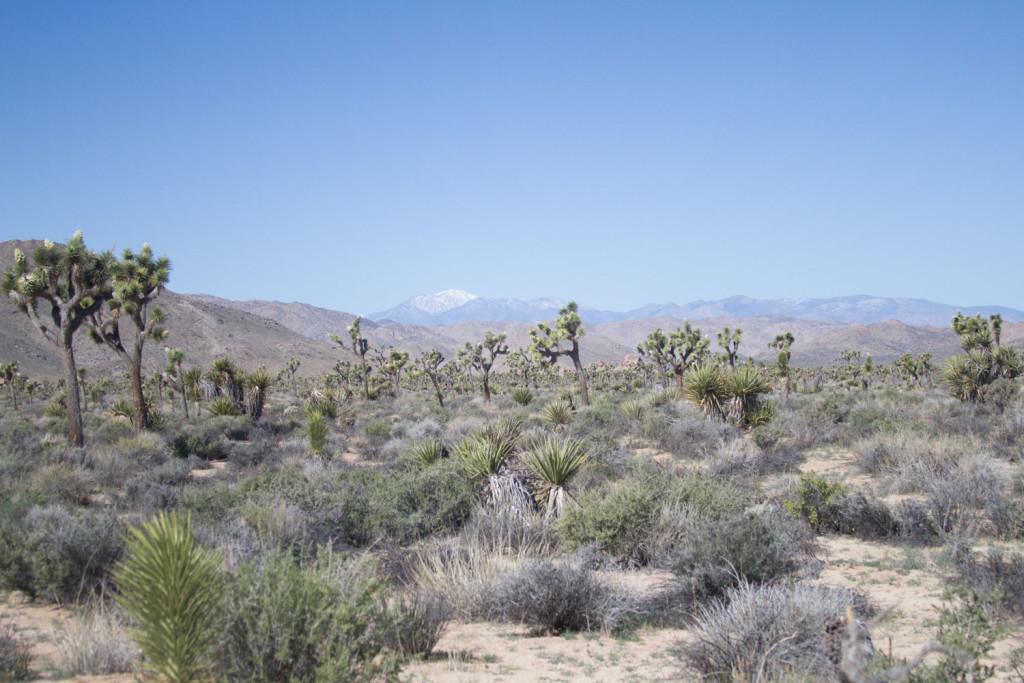
FAITH MECKLEY/THE ITHACAN
He asks Holly to hold him there at the top of the wall, and he turns his focus to Lima, who has nearly reached the top of her route.
Lima is exhausted. Her legs shake every time she settles her feet on a new hold, and her heavy breath whooshes against the stone a few inches from her face. The sun beats on the back of her neck, but she can’t give up now. Her slim fingers leave the wall to reach for the anchor — the finish.
Below, everyone cheers, and Dylan leans over on his rope to give her a high-five. Jen takes in the tension of Lima’s rope, but she still clings to the wall.
Dylan waits with her at the top as she catches her breath. After a few minutes, Lima calls that she’s ready to lower, but she refuses to lean back on the rope, and her skin scrapes against the rough, gritty wall in the “cheese-grater method” of descending.
“Lean your shoulders back like you’re going to do a backflip!” Scott yells to her.
“Oh, God!” she cries, and grips the wall tighter.
“Wrong analogy, Scott,” Holly laughs.
Jen pauses in lowering Lima, and she continues to hug the wall. Dylan speaks to her in a soft voice, and she nods at what he’s saying. After a few minutes, and with her legs quivering, she forces herself to trust Jen and the equipment and leans back, shifting her body weight from her hands and feet to the rope.
“Not too fast!” she tells Jen, who lets the rope slide through her hands inch by inch. When her feet touch the ground again, all the tension in her body melts away.
“My first ascent on real rock!” she exclaims as Lil wraps her in a hug. “That was awesome!”
When Lima comes back to Earth, Rob and the experienced OB trainers aren’t thinking about the 5.5 rating. As far as they’re concerned, Lima just summited Mount Everest.
With half the group enrolled in the minor rather than the major, Pat said they have less collective experience than previous immersion groups, but they make up for it by being hyper aware of one another’s abilities and limitations.
During their trek across the sandscape together, the students carried all the water they needed for days at a time on their backs along with the rest of their equipment.
Lima’s small frame made it difficult for her to carry a large pack. Dylan and some of the others took on more weight to help her. He said his pack weighed between 70 and 75 pounds, 40 of which were water — overall, nearly three-quarters of Lima’s body weight.
Lima said the group’s patience with her during rock camp and overall acceptance of her experiential limitations demonstrated how deeply she could trust her group.
“It just showed me how close I can be with them and that I don’t have to hide,” she said.
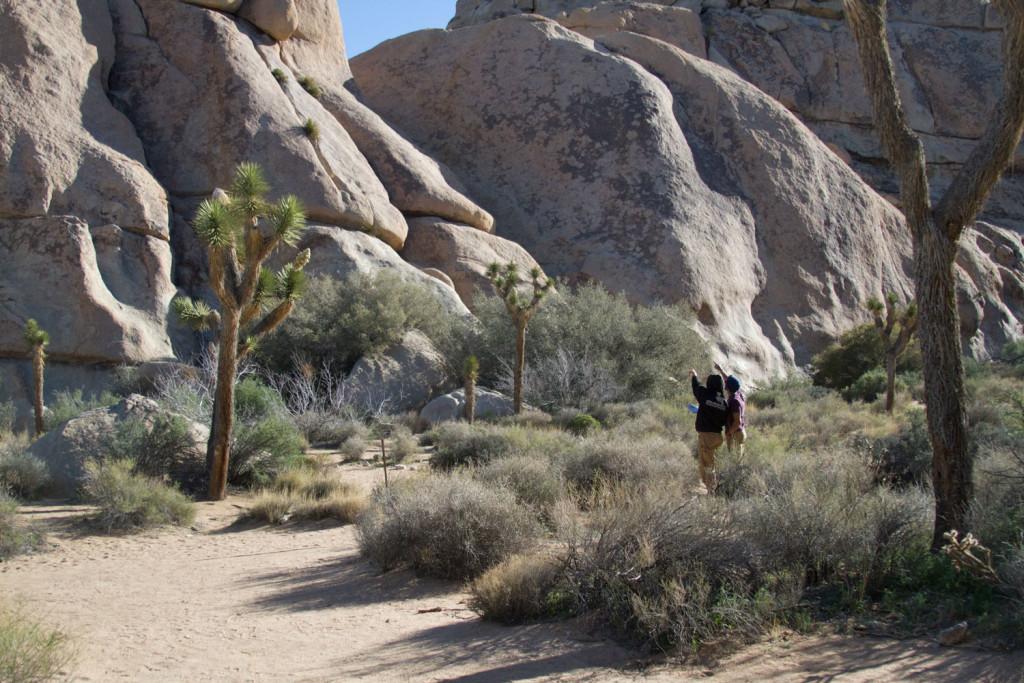
FAITH MECKLEY/THE ITHACAN
[line]
“We simply need that wild country available to us, even if we never do more than drive to its edge and look in. For it can be a means of reassuring ourselves of our sanity as creatures.” — Wallace Stegner, 1960, “Wilderness Letter”
[line]
When the immersion group departed from Black Rock Campground on Feb. 21, the slow pace was an exercise in patience for Sarah, one of the more experienced members on the expedition. She spent the summer of 2015 in the Bob Marshall Wilderness Area of Montana with the Student Conservation Association, where she assisted with firefighting and was a part of the trail and river crews. She said that during her time in Montana, she carried a heavy pack for upwards of 15 miles every day.
“We hiked 3.5 miles. Took us upwards of 3 hours. Kind of pathetic?” she wrote in her journal after the first day of hiking. “I need to be more positive and supportive. … You can’t prepare for shit like this w/ anything other than backpacking.”
As she trudges along the first few days, her emotions swing back and forth. In one moment, she is enraptured by the twisted Joshua Trees, with their green leaves like “explosions frozen in their blast.” The next moment, she is consumed by homesickness and feels her mind drifting away to a boy she left behind in Ithaca.
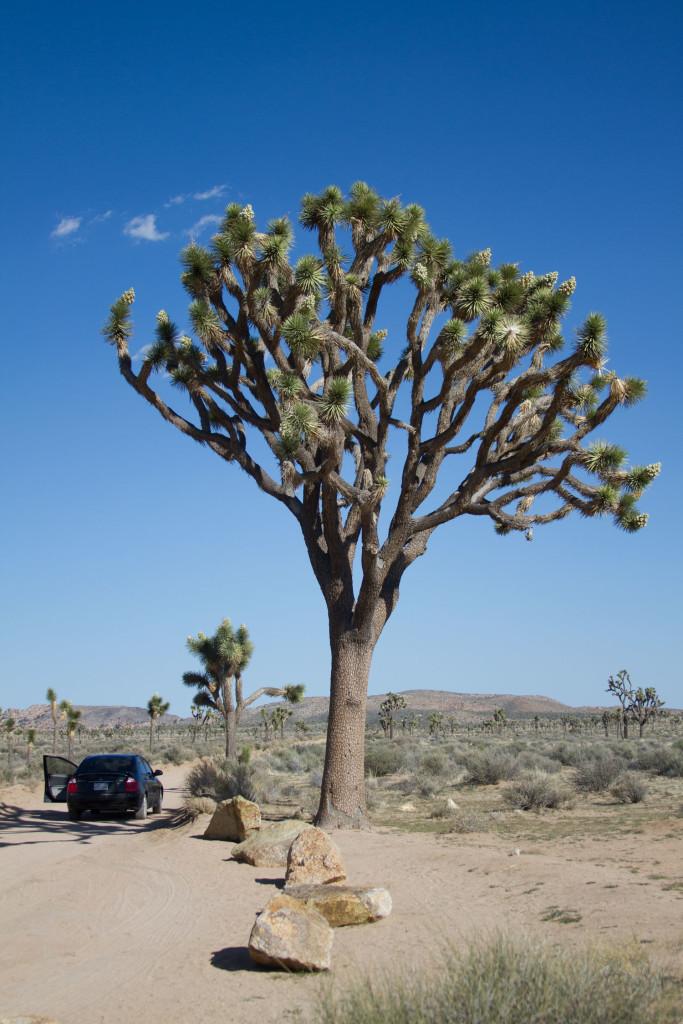
FAITH MECKLEY/THE ITHACAN
She writes it all down in her notebook, scrawling “PERSONAL” in big letters at the top of each page so Pat can distinguish her assignments from her diary.
She knows it will get better, and she writes as much in her first few journal entries. For the first eight days, she does her best to be present and accept her seven companions as family. On the ninth day in the East Virgin Islands, a rock formation in the park, the eight of them split up into their solo sites, where they spend three days in solitude with a limited food ration.
On the first day of her solo, Sarah is flooded by everything she was holding back — her homesickness, the arguments she had with her friends before she left, her mistakes.
“It is initially like drudging through the mud,” she writes, “but as the trivial are filtered out and the important are analyzed and deepened, it feels like skating on clear ice.”
Perched on a boulder just outside of the camp in Indian Cove, Sarah is wearing the same navy blue Spotted Bear Ranger Station T-shirt as she has been all week. She said that as the backpacking expedition progressed across the park, they acted more and more like a pack of animals — not to mention smelling like one. The lack of social obligations was freeing.
“You didn’t realize that you need warm water to just dribble over your skin until you get it, and you didn’t realize how much you missed a warm cup of good coffee until you get it,” she said. “All these things that you never appreciated … become some of the biggest, most important things. I really hope I don’t stop appreciating it when I go back.”
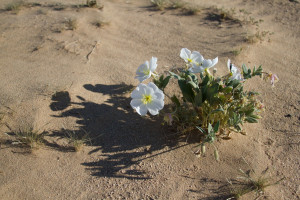
March 13 was a relatively easy day for the group, as the chosen climbing site was within shouting distance of the campsite. As Sarah lowers from finishing one of the routes, she grips the rope attached to her harness with two hands.
“Don’t hold on to the rope!” Rob and Dylan call out at the same time.
“Oh my god, guys, I know, I know,” she snaps, throwing her hands down to her side. Rob and Dylan look at each other in surprise. When her climbing shoes hit the sand, she stands and smiles at them.
“But I appreciate it,” she adds in a softer voice. They smile back, and Rob slaps her five for finishing the route.
Meet me where the wild begins, I will show you who I truly am.” [citation]—Sarah Stuart-Sikowitz[/citation]
In a rare hour of downtime among the day’s rock climbing, academic lessons and preparing dinner, Sarah lies back in the cool sand beneath the shade of a creosote bush. Her curly black hair is pulled back into a rabbit-tail bun, and through her wide, black-rimmed glasses, she stares up at the sky. In her lap, she plucks a ukulele with her long fingers, and her light voice fills the air around her. Lima and Dylan come to sit on a nearby picnic table to listen as they write in their journals.
“Everyone gets to make one big mistake,
And if you’re waitin’ on me,
Well, I guess you’re gonna hafta wait,
’Cuz I’m savin’ mine up for a very, very special day,
When I can fuck it all up in the most spectacular way.”
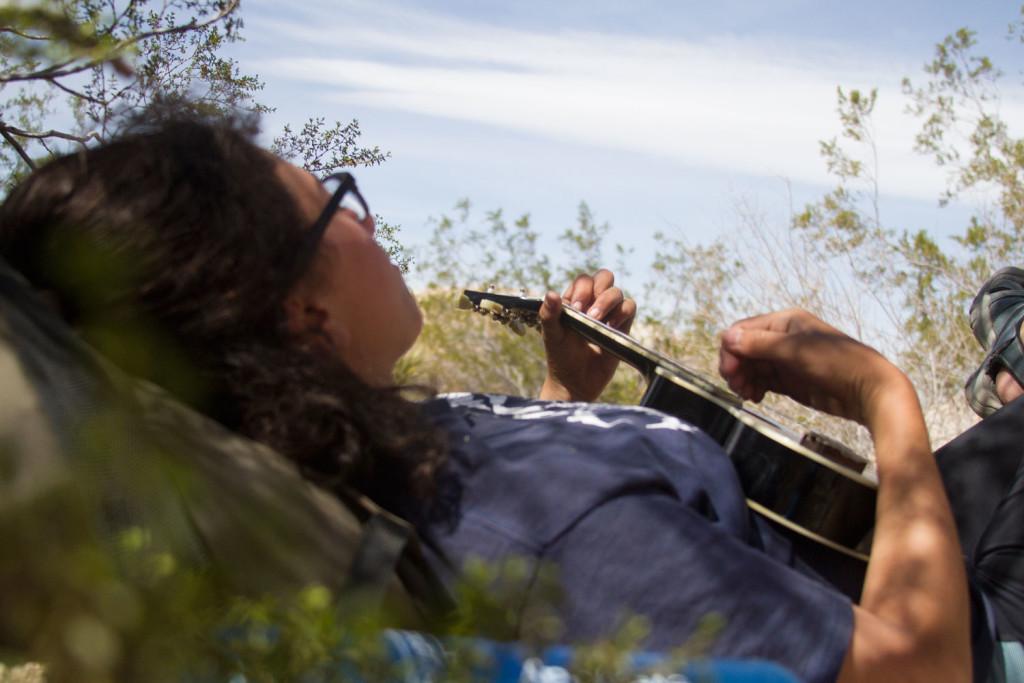
FAITH MECKLEY/THE ITHACAN
As she strums the Tim Fite song on her ukulele and sings up to the ocean-blue sky drifting overhead, her voice swells and rolls with the music — she’s singing for herself just as much as she’s singing for Dylan and Lima. All of her focus is on the next note to spring from her fingers.
Her longing for the boy left behind subsided when they reached Indian Cove, just as she instinctively knew it would. She wasn’t in love, after all. Love is carrying extra weight for someone who can’t. Love is living in a landscape where, as Sarah said, “every plant, rock and animal has a poker” and still finding beauty in it, still allowing it to humble you.
She knew it from the beginning. How can one be homesick if they allow themselves to feel at home?
“Meet me where the wild begins, I will show you who I truly am,” she writes on the second day of the hike in the Upper Covington Flats. As she writes the last sentence of the day’s journal entry, her handwriting grows bigger with every word. “This is my home. … Out here I am finally free.”
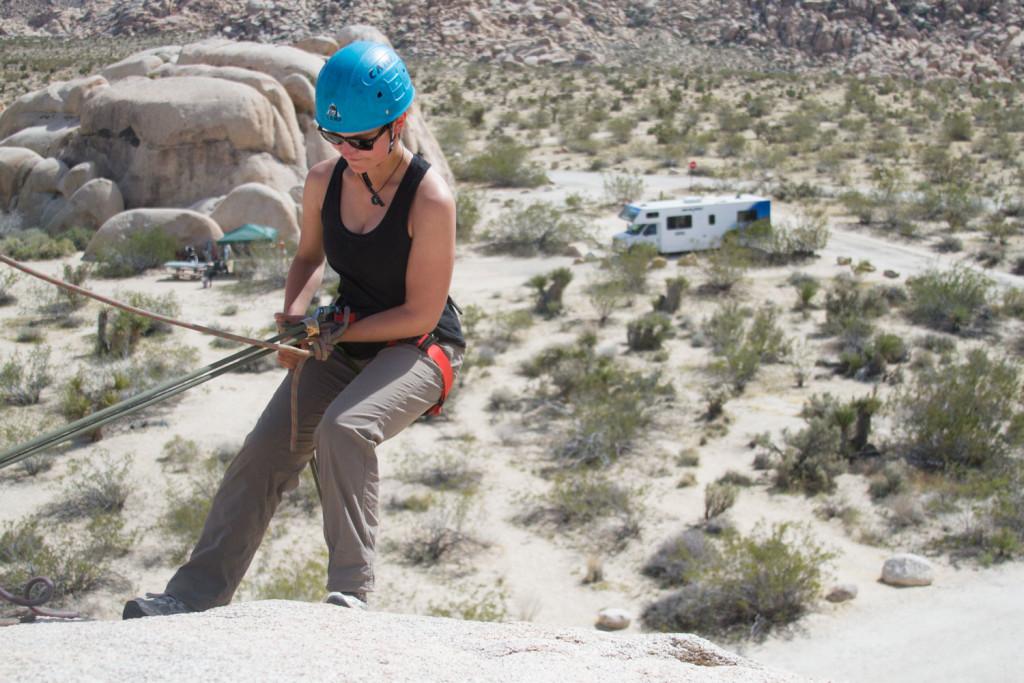
FAITH MECKLEY/THE ITHACAN
[line]
“If you have come here to help me, then you are wasting your time. But if you have come because your liberation is bound up with mine, then let us work together.” — Lilla Watson
[line]
That same day, Violet topped out on a route neighboring Sarah’s called “Morning Star,” a sandbagged 5.9. Rob and Dylan had just struggled their way through the route before she decided to give it a go.
While she climbed, Nick positioned himself below her to give her advice. Nick and Violet were close friends before the trip began, and they are always watching each other’s back. About 10 feet below the top, Violet gets stuck at the crux — the most difficult part of the climb.
“Any advice?” she calls down.
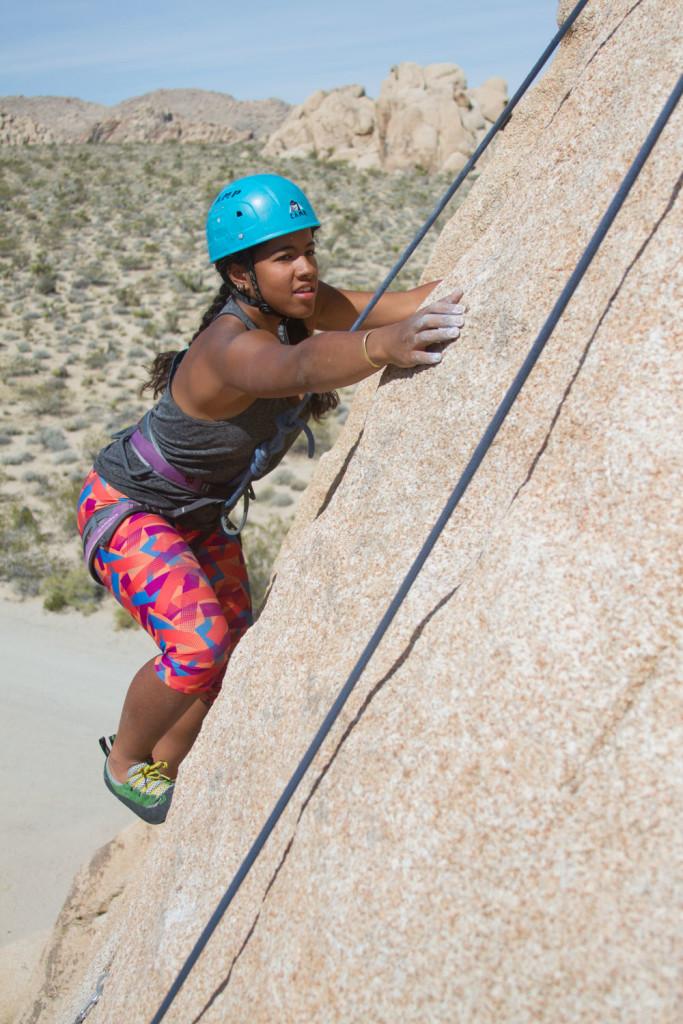
FAITH MECKLEY/THE ITHACAN
“Yeah! Finagle the bagel!” he shouts back up. She laughs, and although his advice means nothing, she unlocks the problem and conquers the crux. She slaps the anchor and leans back on her rope, turning her hips to face the wide-open desert behind her.
“What have you done with your Sunday?!” she shouts at the cars off in the distance racing by on state Route 62.
Violet’s thick, curly black hair falls past her shoulders, and the bright pink and orange of her leggings pop against her dark skin. A dream catcher tattoo is inked into her left shoulder, and her athletic stance and broad shoulders command respect.
In December, dressed in black with her hair in two braids, Violet stood atop a brick wall in front of a crowd of hundreds. Gripping a microphone in her right hand, she called upon the president of the college for the third time.
“Tom Rochon, please approach the stage!”
The man relented, leaving his safe group of administrators on the front steps of the Campus Center, and walked down a gauntlet of students to join Violet on Free Speech Rock. There, he listened as Violet and other members of the activist group People of Color at Ithaca College named their demands for improving the campus’s racial climate, the first and foremost being his resignation. Barely a month later, he would announce his early retirement.
Violet said her participation in the POC at IC movement helped her feel connected to a community of people of color for the first time.
“I’ve gone to predominantly white schools my entire life, so I never really had a sense of who I was in regards to race, or what that meant at all,” she said two months before the immersion semester began. “So, as a result, I was never really friends with a lot of people of color.”
I think it’s important that more people of color get out in the wilderness and do stuff because it’s such a healing and beneficial environment.” [citation]—Violet Perry [/citation]

In the desert wilderness of California, the troubles of a college on the East Coast seem far away. In fact, anything beyond the next meal seems far away. But diversity issues are not just contained to Ithaca College’s campus — on the immersion semester and in the outdoor field, people of color remain a minority.
She reflects on this April 18 from Outward Bound’s Odin Falls Basecamp in Oregon, after the group has left Indian Cove. Here, the group is having a few days of downtime between its whitewater rafting trip down the Deschutes River and its final mountaineering expedition.
“I’ve been talking a lot with people lately — my instructors and my peers — about the ‘adventure gap,’ which just refers to the staggering lack of diversity in the outdoor adventure field as a whole,” she said. “I think it’s important that more people of color get out in the wilderness and do stuff because it’s such a healing and beneficial environment for everybody.”
The scenery of the Deschutes River is vibrant, with bright yellow and purple flowers, lupin, balsamroot, canyons, mesas and the occasional sighting of wild horses. One bank of the Deschutes borders the Warm Springs Indian Reservation, something that did not go unnoticed by Violet. She recalled one part of the river where they portaged around a sacred waterfall where the native people used to fish and rafters are not allowed to run through.

FAITH MECKLEY/THE ITHACAN
“It’s just a reminder that we’re on land that didn’t really belong to any of us,” she said. “People were promised a free 160 acres of their own that the government was giving them that the government had no right to give.”
On day seven of their backcountry hike, Pat asked them to write in their journals about what they thought it would have been like to live with the ancient tribes in Joshua Tree.
“I’m part Cherokee, and I never know how to connect with that,” she wrote. “I think I would have been happy living so close to the land and in such a collectivistic society.”
She said being in the same areas the ancient tribes were once in made her feel closer to her heritage but also sad because they were long gone and forced out by the advance of Western civilization.
She said the wildernesses of California and Oregon have begun to feel like home.
“I’ve never been in my sleeping bag freezing and been like, ‘Oh man, I wish I was home in my bed.’ It’s been more like, ‘I wish I wasn’t too lazy to put on more layers,’” she said. “I feel like I could continue doing this forever, at this point.”
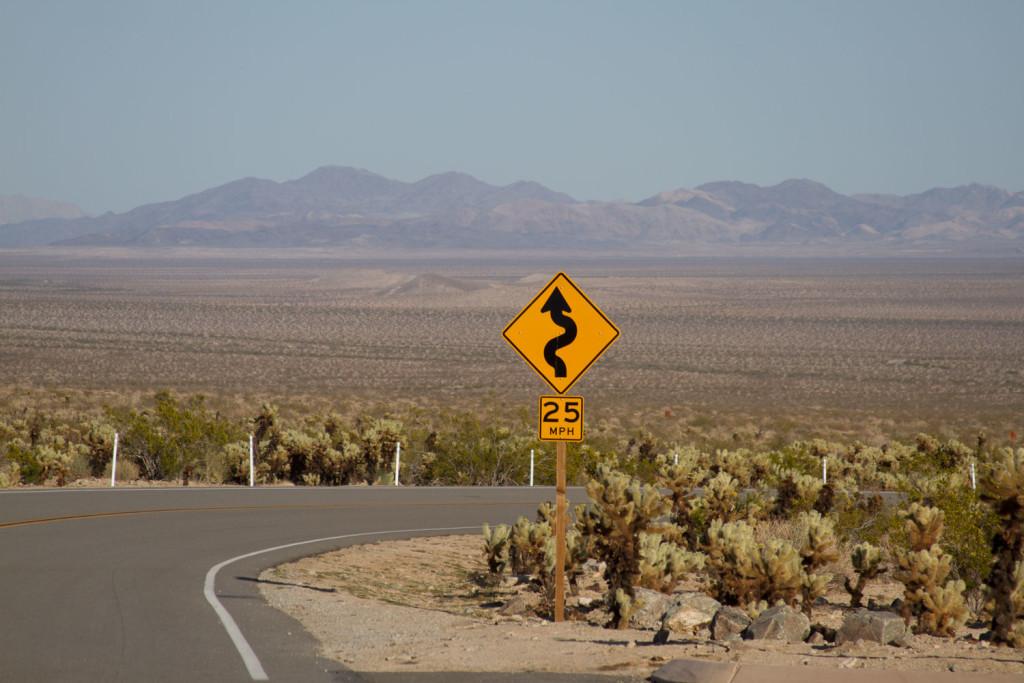
[line]
“Unlike television, nature does not steal time; it amplifies it.” — Richard Louv, “Last Child in the Woods”
[line]
On March 17, the group descends from the granite labyrinth of Indian Cove into the valley on its way to the small, bustling town of Joshua Tree. Cam turns the dial on the dash, and they listen to the radio for the first time in a month. They have their phones back, too, and they scroll through Instagram and text friends from home. During the backpacking excursion and rock camp, their phones were stashed in a bucket in the back of the gear trailer.
It’s a “town day,” and they’re leaving Joshua Tree early the next morning to head up the coast to Oregon. From there, they will take a wilderness first aid course, have a second rock camp at Smith Rock, raft down the Deschutes River and summit the mountain of Broken Top.
Dylan stares out the window at the desert landscape flying by at 65 miles an hour. He’s the only one who doesn’t have his phone out. The music on the radio cuts out, and a newscaster begins to speak.
“Seven were shot and killed in Syria —”
Everyone stops talking. Dylan yanks his gaze away from the window.
“Can we not listen to the news?” he asks. Cam slaps the dial, and the station changes back to music. Everyone relaxes and begins chatting again.
“No news is good news,” Dylan murmurs.
After a couple of hours, they gather up again in the parking lot of Coyote Corner, a gift shop that also sells showers to sweaty tourists and greasy climbers. In the sitting area by the showers, they are sporting fresh outfits for the first time in more than a week.
I forgot how luxurious it is to drink out of glass.” [citation]—Nick Beltran[/citation]
Nick sits on a bench in the shade in a white T-shirt and denim overalls, and with his bare feet, he looks a bit like Tom Sawyer. He bought new pens, a Sharpie, a bottle of Perrier and a copy of the Los Angeles Times. He turns off his phone — “Done with that.” — stashes it in his bag and snaps open the newspaper to catch up with the world.
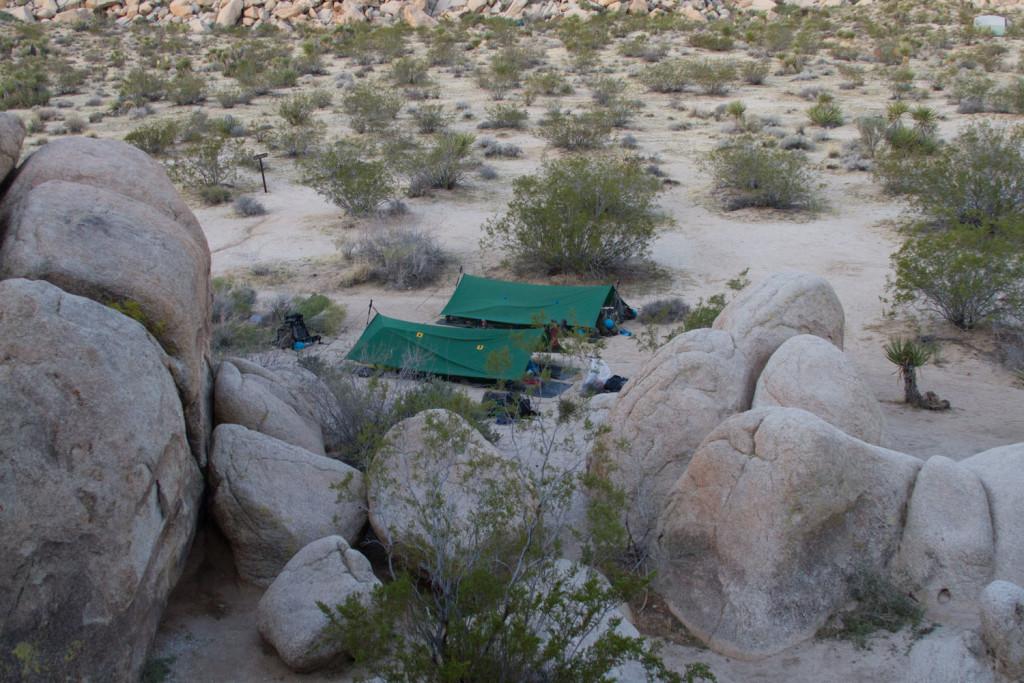
FAITH MECKLEY/THE ITHACAN
When they return to camp, everyone is bright and perky from shedding their layers of dirt. As Nick sits at the picnic table, he picks up his bottle of Perrier and looks at it.
“I forgot how luxurious it is to drink out of glass,” he says to no one.
The trip to back into civilization was refreshing, but the rush of information and the jumping energy of a town full of tourists and wayfaring travelers leaves them dazed.
Lima said her time on the immersion semester helped her realize she wants to spend less time in the city and settle in a more natural area.
“It deepened my love for the outdoors, and I want to integrate it more into my life and hopefully inspire other people to, especially people from the city,” she said.

[line]
“Accept nature as your teacher. It will swaddle you then feed you. But to push it away, consider it inanimate, a challenge, a thing to be conquered, it will chew you up and swallow you. What kind of gall must a tiny human have to think a mountain is anything but godly?” — Sarah Stuart-Sikowitz, journal entry
[line]
Broken Top is actually an extinct, eroded volcano, like many other peaks in the cascade region, including the neighboring Three Sisters. The jagged teeth framing the ancient lava vent bite at the clouds, creating a rugged skyline.
Before going on the immersion trip, Sarah had summited Spotted Bear and Silvertip mountains in Montana and Sugarloaf Mountain and Catoctin Mountain in Maryland, among others. Throughout the semester, Sarah looked forward to Broken Top, which was waiting like a crown jewel at the end of the voyage.
“Every time I climb a mountain or climb something with my backpack and boots — it’s not even a feeling of accomplishment. It just reminds me of what it feels to be alive,” she said.
However, the mountaineering expedition did not go as Sarah planned it would.
Following a brief break after its Deschutes River run, the group spent three days hiking to its base camp on Broken Top with packs weighing between 60 and 80 pounds. The weather was overcast and miserable with near constant snow, slowing their progress. Despite the grueling conditions, Sarah took notice of and appreciated the fact that they were hiking near running water for the first time together.
The weather grew worse at base camp with driving snow and rain, and Sarah said everything was soggy and smelled bad. But, through brief windows in the clouds, they caught rays of sunlight and breathtaking views of Broken Top and the Three Sisters.
On the second day at base camp, Sarah began to feel lightheaded and dizzy and struggled to breathe, and she didn’t partake in the day’s activities. Scott soon made the decision that she wouldn’t be able to climb Broken Top. But as her condition did not improve and it became clear that it wasn’t treatable in the field, Scott then told her the entire group would need to evacuate her from base camp.
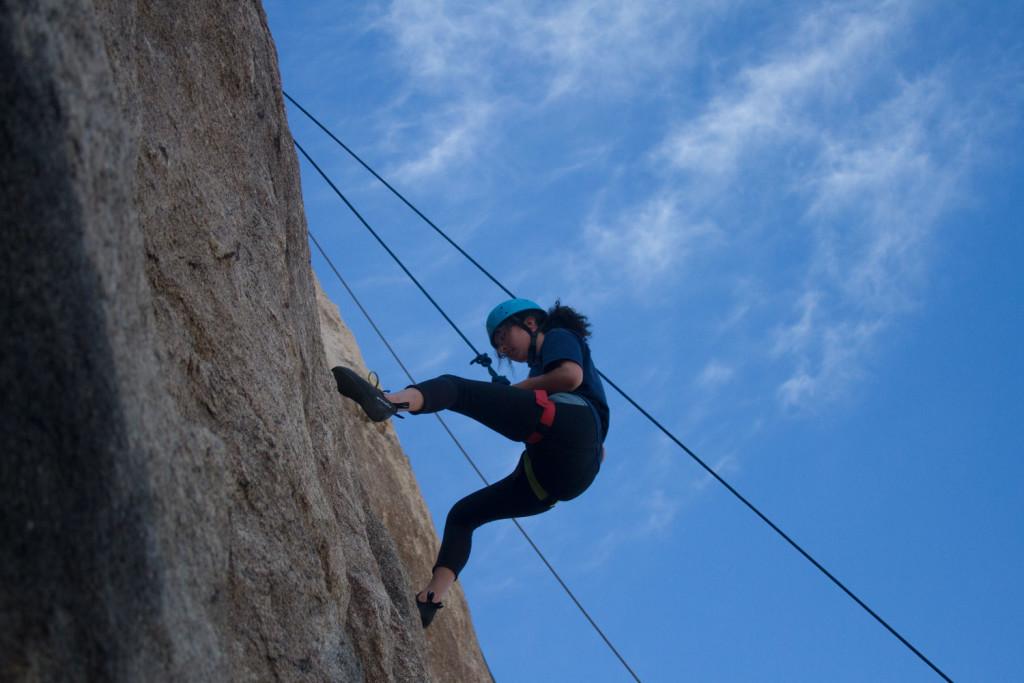
FAITH MECKLEY/THE ITHACAN
“If we split the group up, we would get hurt,” Sarah said. “I broke the news to the group, but I was crying. They knew I was sad — all I wanted to do was go up myself or see someone go up a mountain.”
They left the mountain, and her condition worsened before it got better. Sarah was brought back to Odin Falls, where she made a quick recovery while the other seven continued on a final hike together before two days of final exams. She said the urgent care physicians who examined her were unable to find a specific diagnosis.
[block]As her condition did not improve and it became clear that it wasn’t treatable in the field, Scott then told her the entire group would need to evacuate her from base camp.[/block]
Although she felt bad about keeping the others from summiting, Sarah said she thought the group felt some relief over having a reason to leave early. Even though no one complained, the conditions were exceedingly uncomfortable.
“A lot of them were baffled by the fact that I wanted to do that kind of thing for the rest of my life,” she said.
For Sarah, the semester was a long exercise in learning that it is OK to depend on other people.
“I realized a lot of this you can’t do by yourself, and as many lessons you can learn going into the woods by yourself, there are also a ton of other things you can learn from being a part of a group.”
She said the eight of them learned absolutely everything about each other and that they even began to have similar dreams.
“When we came in, we were individuals, and we’re not leaving as nonindividuals, but we kind of melded together into … one thought,” she said. “There’s one new person coming out, and it’s the eight of us.”
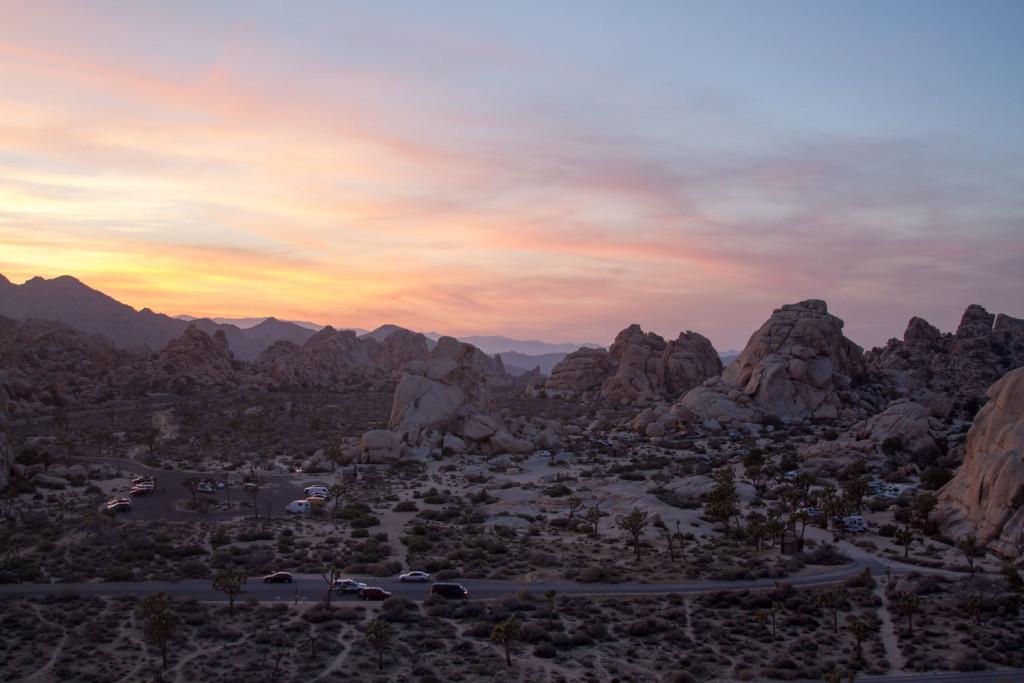
FAITH MECKLEY/THE ITHACAN


